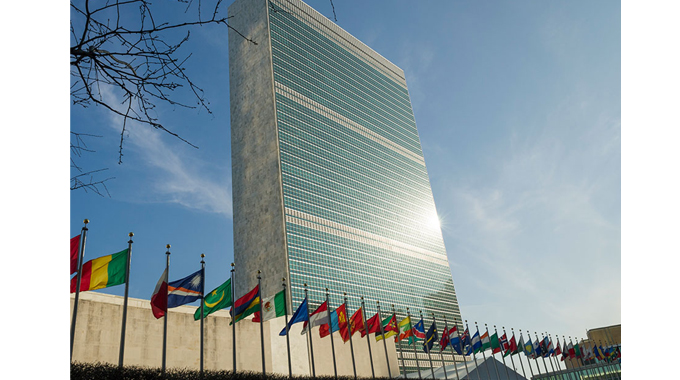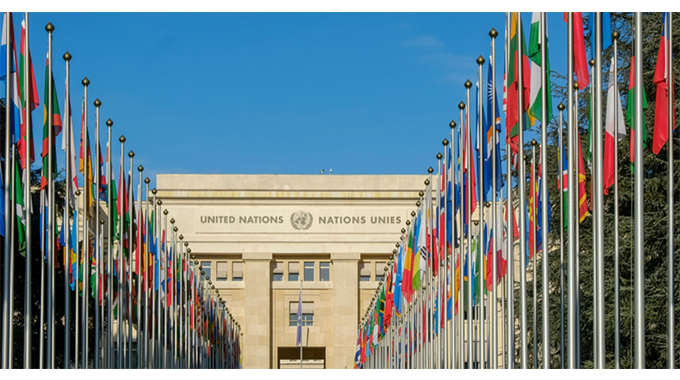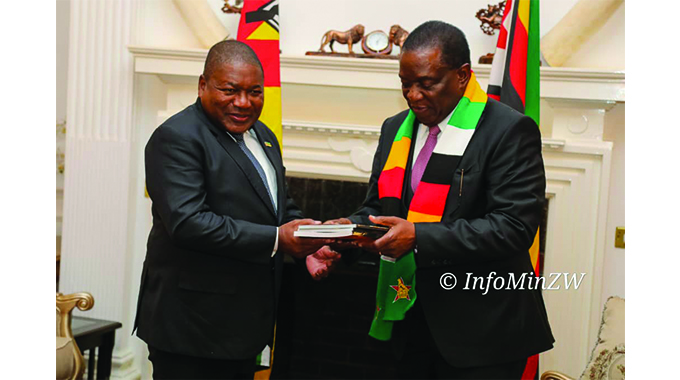Unpacking UN’s report on negative effect of sanctions

Rutendo Matinyarare
Between September 12 and October 7, 2022, the UN Special Rapporteur for the negative impact of unilateral coercive measures, presented her findings on the negative impact of coercive economic measures (sanctions) on Zimbabwe to the UN Human Rights Commission, during the United Nations General Assembly (UNGA).
She presented two reports, one A/UNHRC/51/33 Add2 on the negative impact of sanctions on Zimbabwe and another, A/UNHRC/51/33 on Secondary sanctions, civil and criminal penalties for circumvention of sanctions regimes and over-compliance with sanctions.

The two reports are related and interconnected. However, in this write-up, we will focus on the report A/UNHRC/51/33/Add2 on the negative impact of sanctions on Zimbabwe. The write-up, will also offer a light appraisal of the Special Rapporteur’s report in areas the report was deficient.
The report on the negative impact of sanctions on Zimbabwe, comes as part of the Human Rights Council’s 51st meeting, which seeks to promote the protection of civil, political, economic, social and cultural rights enshrined in the human rights treaties of ICCPR (International Covenant on Civil, Political Rights) and the ICESCR (International Covenant on the Economic, Social and Cultural Rights).
The basis of the report was focused on the twelve months the UN Human Rights Council spent undertaking primary and secondary research on the negative impact of unilateral sanctions on the enjoyment of human rights in Zimbabwe.
This final report uses less damning language than the preliminary observations made by the UN Special Rapporteur, Alena Douhan, on October 28, 2021. In many ways, it is more accommodating, diplomatic and conciliatory than the preliminary report that was a scathing indictment of those that were imposing sanctions on Zimbabwe.
In her findings, she concluded that the unilateral sanctions on Zimbabwe, alongside over-compliance, are contrary to international law and have denied Zimbabweans the enjoyment of their human rights, thus they must be removed in line with the rule of law.
She also clarifies that direct sanctions, secondary sanctions and overcompliance to those sanctions, have affected the Government of Zimbabwe, the critical function of the State, State-Owned Enterprises, the economy, banks, financial institutions, industry, agriculture and even non-governmental organisations, preventing them from operating optimally.
Sadly, even though sanctions are mass persecution of over 15 million Zimbabwean civilians, the report fell short of calling the illegal sanctions on Zimbabweans, crimes against humanity that have caused deaths and suffering among Zimbabweans.

United Nations Development Programme
We believe that the reason the report failed to reach such a conclusion, is because it makes an error in identifying the direct sanctions upon the country as you will see further in the summary.
The report is broken down into sections with the first section below being dedicated to defining the sanctions.
The Zimbabwe Democracy and Economic Recovery Act (ZDERA) is identified as the first set of sanctions imposed on the country in 2001.
Here the UN Human Rights Council identifies these sanctions as measures by which the United States government prevents any international multilateral lending institutions from lending money to the Zimbabwean government or cancelling its international debts.
From here, it goes to March 2003, when the United States augmented ZDERA by declaring a national emergency upon 77 individuals who were immediately put under executive order sanctions, EO13288.
It says the same executive orders were extended in 2005 and then again in July 2008.
Missing from the Special Rapporteur’s acknowledgment of these executive order sanctions, is the fact that these measures were extended at intervals related to upcoming elections or periods just after elections in Zimbabwe, to manipulate election outcomes and bring the democratic change (regime change) advocated in ZDERA’s S494 purpose statement.
For example, ZDERA was imposed 9 months after MDC lost parliamentary elections to Zanu-PF, in 2000. Additionally, the first executive order sanctions, EO13288, were imposed after Cde Robert Mugabe was re-elected President in the 2002 Presidential elections, while the executive orders EO13469 were levied 32 days after the June 27, 2008 run-off Presidential elections that happened five days after Morgan Tsvangirai decided to pull out of those elections and lost to Cde Mugabe.
The report then proceeds to outline the February 2002 European Union sanctions, which were on 77 individuals, who were soon also put on US executive orders the following year in 2003. These were then extended in 2004 February and then again in 2011 where they peaked at 163 individuals and entities.
Continuing with the report, it says that in March 2013, the EU suspended most of its sanctions on Zimbabwe, until it totally eliminated them in 2020.
This conclusion by the Special Rapporteur is erroneous, because even after 2020, the EU maintained an arms embargo on the Government of Zimbabwe and sanctions on the Zimbabwe Defence Industries (ZDI).
Additionally, in February 2021, the European Union imposed four more sanctions on four Government officials it claimed had been responsible for killing innocent civilians in riots in August 2018 and January 2019.
Dramatically, twelve months after imposing these sanctions on the four officials, in the February 2022 sanctions review, the bloc removed the very same sanctions that they had imposed on the officials a year earlier.
It would seem that the Special Rapporteur’s conclusion in her October 28, 2021, preliminary report on the negative impact of sanctions on Zimbabwe, that the so-called targeted sanctions on these individuals, were lacking in due process, possibly compelled the EU to remove these illegal sanctions that they had imposed on those individuals without trial.
The report also speaks to Swiss and Australian sanctions, which both nations apparently removed in 2020. As far as our research goes, both Switzerland and Australia still have arms embargoes on the Government of Zimbabwe, sanctions on ZDI and travel bans on some politicians. We also understand that they accede to sanctions by the other Western nations.
What is also missing from the Special Rapporteur’s report, is the fact that in 2018, Donald Trump amended the ZDERA sanctions into S2779, and in that amendment, he added the EU, UK, Canada and Australia as parties that the US government would negotiate with to implement ZDERA.
This essentially means that even though the EU, Canada and Australia have essentially removed direct sanctions on Zimbabwe, outside the arms embargoes on the Government and sanctions on ZDI, they continue to implement sanctions indirectly through voting with the United States in multilateral lending institutions, to deny the Zimbabwean Government, its parastatals and municipalities loans.
Secondary sanctions and
over-compliance
In this section on sanctions, the report also speaks to third parties fearing secondary sanctions, penalties, criminal and civil prosecution, which compels them to over comply with illegal sanctions thus adding another layer of sanctions known as over-compliance.
Among the biggest implementers of over-compliance, according to the report, are banks, software companies, tool manufacturers, manufacturers of fertilisers, chemicals, parts and reagents. This has exacerbated the sanctions even more on Zimbabwe.
In the report on secondary sanctions and over-compliance, the Special Rapporteur suggests that the United States is possibly leaving its sanctions vague, to encourage over-compliance as a means to increase the impact of sanctions and to extend their extraterritorial reach outside the direct sanctions.
Over-compliance are sanctions implemented by third parties to avoid being penalised or prosecuted criminally for not implementing sanctions imposed by the US, EU, UK, Australia and or Canada.
However, the only problem is the report speaks of over-compliance before adequately identifying the direct sanctions on Zimbabwe. This in turn creates the impression that the sanctions affecting civilians in Zimbabwe are only over-compliance and not direct sanctions upon civilians.
Notwithstanding, executive orders EO13469 explicitly outline that they target 144 individuals, businesspeople, parastatals, companies and financial institutions; anyone trading with the targeted 144 individuals, but as you continue reading the document, it expressly prohibits anyone from doing business with the Government of Zimbabwe, companies owned by the Government of Zimbabwe and anyone who does business with them or else those trading with the above, stand the risk of suffering secondary sanctions, criminal or civil prosecution or confiscation of assets.
This means that the direct sanctions on Zimbabwe are on 144 so-called targets, but as the prohibition clearly states, they also directly prohibit anyone from doing business with the Government of Zimbabwe, companies owned by the Government of Zimbabwe, Local Government and those that do business with them.
These are not secondary sanctions or over-compliance but they are direct and expressed sanctions on the Zimbabwean Government and therefore the Zimbabwean people as a whole, a point not fully acknowledged in the UN Human Rights Council report.
This is a material omission of facts which definitely influenced the definition of the nature of crime being perpetrated upon Zimbabweans, the conclusions of the report and remedies recommended by the report.
l Rutendo Bereza Matinyarare, Chairman of Zimbabwe Anti-Sanctions Movement and Founder of Frontline Strat Marketing Consultancy








Comments